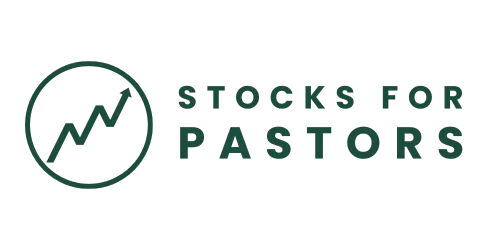A practical, pastor-friendly system for creating real cashflow from the market.
Build a trading business that pays you monthly, without stepping away from ministry

You Don’t Need Another Job. You Need a Paycheck That Works on Your Terms.
You’ve probably heard it before:
“Start a side hustle.”
“Pick up some extra speaking gigs.”
“Drive for Uber in your free time.”
But deep down, you know the truth: Your time is already maxed out.
What you need is margin. Not more hustle.
What If You Could Run a Simple, Part-Time Trading Business From Your Laptop?
The Income Plan is a complete system designed to help entrepreneurial-minded pastors create withdrawable income every month using options trading.
It’s not a hobby. It’s not guesswork.
It’s a repeatable process to build a lean, flexible business that pays like a second job—without pulling you away from your first calling.

You’ll know exactly what to do, when to do it, and how to manage it.
How It Works
This isn’t “set it and forget it” investing. This is business building, with tools, structure, and strategy.
Learn three simple strategies that power our 5–10% monthly ROI targets
Receive weekly trade alerts you can copy in minutes
Watch your account generate consistent monthly cashflow
Withdraw profits just like a paycheck
Grow your skills, build confidence, and scale at your pace
What's Included
When you join the Income Plan, you get full access to:
The Options Business Course:
Learn the full framework behind this income-generating model. Taught in clear, practical lessons.
Real-Time Trade Alerts:
Follow Michael’s actual trades each week. Know what to trade, when, and why.
Monthly Coaching Calls:
Get feedback, troubleshoot your trades, and grow with a like-minded community.
Templates & Checklists:
Run your trading like a system, not a guessing game.
Supportive Private Group:
Be part of a network of pastors and ministry leaders building the same kind of freedom you are.
Receive a $100 Bonus:
When you open your trading account with our preferred partner, you'll get a "thank you" gift deposited into your account.
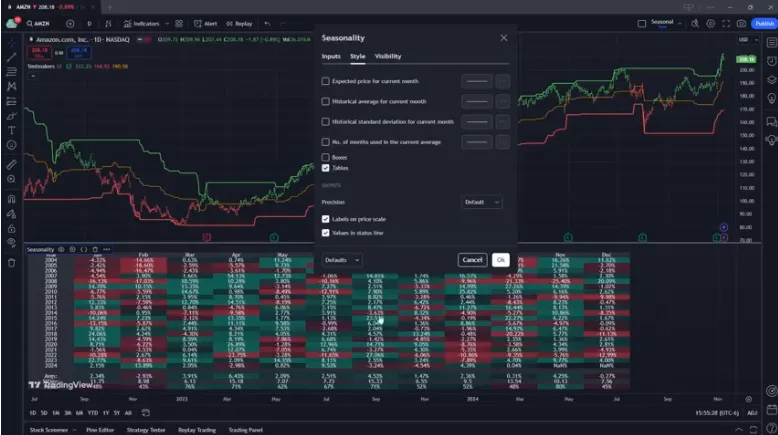
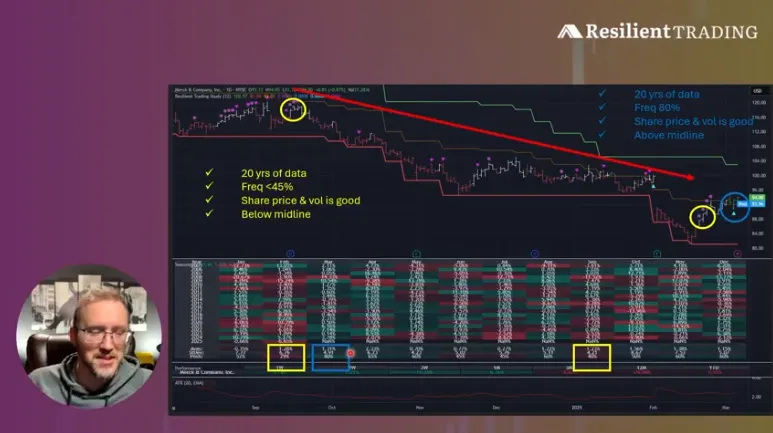
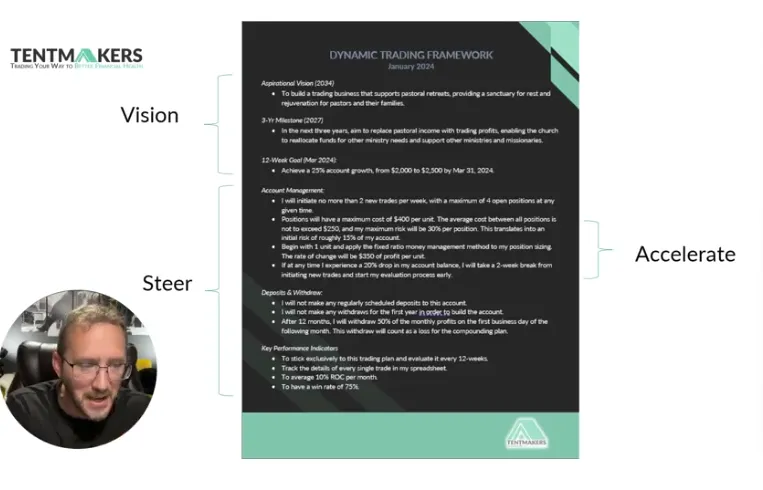
Real Results. Real Income.
This isn’t theory. These are actual results.
Since launching the Income Plan in April 2023, Michael has placed 221 trades with a 79.6% win rate, using the same strategy shared in this program.
Started the portfolio in April 2023 with a $2,000 account.
Earned $11,437 in profit over 24 months!
Average Monthly ROI: 5.9%!
Average Monthly Income: $477!
Only 2 Losing Months: 91.7% winning months!
That’s not flashy day trading. That’s consistent, repeatable income—built with focus, discipline, and a strategy that works.
If a $2,000 account can generate nearly $12K in profit in two years, imagine what this could mean for your family, your ministry, or your financial peace of mind.
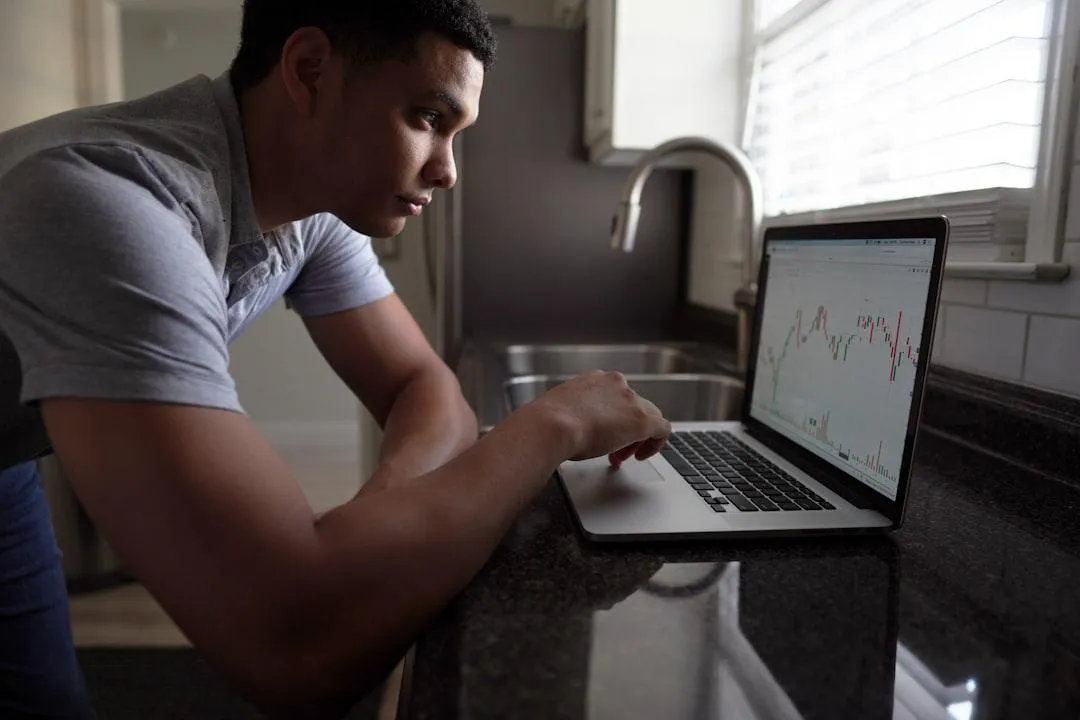
Here's the Best Part!
✅ You can do this in under an hour each week from a mobile device, wherever you are!
✅ You’ll never trade alone!
✅ You’ll always have a plan to follow!
PRICING
Choose Your Plan
Monthly
$197/m
Basics and Growth Plan included
Full access to the Options Business Course
Three high probability trading strategies to set you up for success in any market condition
Real-time trade alerts to follow step-by-step
Monthly group coaching calls for Q&A and support
Access to our members-only community
Downloadable checklists, templates, and guides
Ongoing support & updates
Get 2 months free with Yearly Plan
2 Free 1:1 coaching sessions with Michael

No contracts - cancel anytime
Annually (Best Value)
$1,997/yr
Basics and Growth Plan included
Full access to the Options Business Course
Three high probability trading strategies to set you up for success in any market condition
Real-time trade alerts to follow step-by-step
Monthly group coaching calls for Q&A and support
Access to our members-only community
Downloadable checklists, templates, and guides
Ongoing support & updates
Get 2 months free with Yearly Plan
2 Free 1:1 coaching sessions with Michael

No contracts - cancel anytime
For Pastors Who Think Like Entrepreneurs

Wants to provide more for your family without overextending your time
Believes financial margin creates ministry freedom
Is ready to treat income generation with the same intentionality as discipleship
Doesn’t want hype, just a method that works
Is willing to learn, apply, and grow
You're not just looking to invest.
You're looking to build something that gives back.
What Members are saying

“I can't tell you how awesome it felt to close my first winning trade! Knowing that when I clicked that button, I would be able to use that profit for a much needed date night with my wife. Thank you!”
Jon. H.

“I've been doing pretty good with the stocks plan, but learning how to trade options has taken things to a whole new level.”
Kyle C.

“This has been exactly the kind of side-hustle I was looking for. I needed someone I could trust to teach me how to get more time back and stop doing side gigs that take hours of my time and eat away at my ministry focus. Plus, I make more money with this. A double win!"
Ben C.
Imagine This...
What if you could earn an extra 5–10% every month from your trading account?
Not once in a while. Not someday. But consistently. Month after month. What would you do with that extra income? How would it change the way you care for your family? What would it free you from mentally, emotionally, even spiritually?
Maybe you'd finally take your spouse on that getaway.
Maybe you'd cover an unexpected bill without fear.
Maybe you'd support a missionary or fund a ministry dream that’s been on your heart for years.
Maybe you'd stop feeling like you're behind.
This isn’t about chasing riches. It’s about creating margin so you can serve God and others with peace and confidence.
Let’s build that future together!
Read Our Latest Blogs
Lorem ipsum dolor sit amet, consectetur adipiscing elit.

The Value of True Vulnerability
The Emotional Chaos of Modern Culture
We live in a culture of emotional chaos. Emotions are out in the open, but unfortunately, no one was fully prepared for this shift.
"Get it all out! You’ll feel better."
That’s an oversimplification of the original plan, but the reality is, people are sharing their emotions—and no one really feels better. Emotional expression has become relentless, yet mental and emotional health continue to decline.
Certainly, emotional repression isn’t ideal either. Generations before us were taught to bury their emotions, and that suppression did little for their mental well-being. However, it may have fostered a mental fortitude that seems less present in current generations.
When change sweeps in, it often acts like a mighty wind, swinging the pendulum from one extreme to the other. Over time, with effort, we find balance somewhere in the middle.
As followers of Christ, we must be intentional about finding that balance—about bringing peace into the chaos. People are miserable. Sharing pain over and over doesn’t seem to bring relief. Instead, it fuels narcissistic tendencies—seeking validation rather than transformation.
In all this noise, we’ve lost the ability to be wrong. And when we refuse correction, growth becomes stagnant.
Lessons from History: Vulnerability vs. Strength
Understanding vulnerability is key to restoring emotional health. However, the concept has become diluted—another buzzword lacking depth.
Historically, vulnerability was often seen as a weakness:
Seneca and Marcus Aurelius believed strong emotions disrupted rational thought. They emphasized self-control over emotional expression.
Winston Churchill, though he battled depression, promoted resilience and toughness, framing vulnerability as a distraction in times of crisis.
Friedrich Nietzsche championed the Übermensch—the idea of the "superman"—and often criticized traits he perceived as weak.
John Wayne, the archetypal film hero of the 20th century, popularized the stoic, tough persona that avoided emotional exposure.
More recently, cultural shifts have redefined vulnerability. Brené Brown, a research professor and speaker, brought vulnerability into the mainstream with her 2010 TED Talk, The Power of Vulnerability. She presented it not as a weakness but as a source of courage, creativity, and connection.
Finding the Balance Between Strength and Openness
Both perspectives have merit. Ancient thinkers were not entirely wrong—unchecked vulnerability can disrupt peace. However, neither is full repression the answer.
We sought freedom through open emotional expression, but are we truly free? Or have we misunderstood vulnerability altogether?
The Modern Misuse of Vulnerability
Vulnerability today often looks more like performance than authenticity. It has become a stage for emotional exhibitionism, padded with the cultural caveat:
"Don’t you dare judge me!"
Ironically, this version of vulnerability is anything but vulnerable—it seeks validation rather than connection.
Vulnerability can take many forms:
Emotional – Sharing inner feelings and struggles
Social – Exposing oneself to possible rejection
Intellectual – Admitting uncertainty or ignorance
Physical – Facing danger or harm
Financial – Taking risks with resources
Relational – Opening up in personal connections
Creative – Presenting original work for critique
Professional – Expressing opinions in the workplace
Spiritual – Confessing doubts or faith struggles
Some vulnerabilities are beyond our control—age, genetics, socioeconomics. Others are choices, requiring wisdom to discern when, how, and where to open up.
Jesus’ Example of Vulnerability
Jesus modeled true vulnerability. He entered the world as a helpless baby, taking on human limitations. He felt physical pain, walked among the sick, touched the unclean, and wept over sorrow.
However, His vulnerability was never self-centered. He did not demand attention for His suffering. He shared some burdens with His disciples, but the heaviest He took to His Father.
His example reminds us:
Vulnerability should be others-centered, not just emotional release.
The deepest wounds should first be brought to God before they are broadcasted to others.
The Lost Art of Listening in Leadership
In a culture that amplifies every emotion, one of the greatest vulnerabilities is staying silent.
"Give every man thy ear, but few thy voice." – Shakespeare
Sitting with someone who presses our pain points—without demanding they tread carefully—is one of the most vulnerable places we can be.
True strength comes through listening before speaking. This is a lost art, yet it builds resilience. Ancient wisdom should not be discarded but refined and adapted with the wisdom of Christ-centered leadership.
The Balance Between Sharing and Silence
Do not misunderstand—we should bear one another’s burdens. But not everything is a burden meant for public consumption.
True vulnerability creates safe spaces for:
Trusted correction
Reproof and instruction
Genuine encouragement
However, the modern misuse of vulnerability has given voices to problems without offering hope for change.
When hope dies, self-importance becomes the only thing left to cling to. And when tranquility is lost, chaos takes over.
Vulnerability That Leads to Growth
We must be vulnerable—but in a way that centers on Christ and produces growth.
Ask yourself:
Am I bringing my burdens to God first or running to others for validation?
Am I using vulnerability to transform or just to vent?
Is my vulnerability fostering healing or keeping me stuck in the past?
If the same pain, bitterness, and anger are constantly resurfacing, it is no longer vulnerability—it is stagnation.
True vulnerability will bring growth. If that’s not happening, something else is going on.
The Church’s Role in Leading a New Standard
As church leaders, we must:
Recognize true vs. false vulnerability
Set a different pace than culture
Speak truth in love
Offer hope, not just a platform for grievances
People are not emotionally healthy. Many are losing their minds—and leaving them in that state is not an act of kindness.
We must be a louder voice and a brighter light on these issues.
After all, it is not our own power that is made perfect in weakness, but His.
Point them back to Christ—every single time.
Speaking truth in a confused and angry culture is, after all, a deeply vulnerable act.
